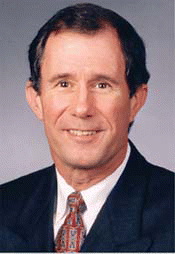Obtaining the subcertification is optional for otolaryngologists. But for those who have an interest, there are a number of requirements. One is to be an ABOto-certified otolaryngologist-head and neck surgeon with an unrestricted license. Candidates must have completed an Accreditation Council for Graduate Medical Education (ACGME)-accredited sleep medicine residency program or fellowship.
Explore This Issue
April 2008However, Dr. Miller noted that the ACGME accreditation began only about three years ago, which means that many doctors who did fellowships did not have the ACGME accreditation available to them. Taking this into account, otolaryngologists may quality if they meet alternate pathway criteria. And through the alternate pathway, otolaryngologists can qualify to take the exam through three possible ways.
First, if the individual is currently certified by the non-ABMS Board of Sleep Medicine, then they’re eligible to take the exam, Dr. Miller said.
The second way is if the otolaryngologist has done 12 months of full-time post-graduate training in sleep medicine. This doesn’t have to be ACGME-accredited, since for many this was a program that didn’t exist for many doctors while they were getting their training.
The third path is having self-trained and practiced sleep medicine for a significant amount of time. These people have to demonstrate that over a maximum of a five-year period they have practiced the equivalent of 12 months of sleep medicine, Dr. Miller said.
This is not easy to demonstrate. Doctors will need to show that they have evaluated a minimum of 400 sleep medicine patients. Dr. Miller pointed out, however, that because sleep problems are so common, that’s not been much of a stumbling block for many otolaryngologists.
The other part of that requirement is that otolaryngologists must have interpreted the data from 200 polysomnograms and 25 multiple sleep latency tests, he said. Related to this final pathway, the ABOto has the right to audit some of the charts and related information. The alternate pathway is an option that will be open for only five years.
Preparing for the Test
Once a doctor has met the qualifications, it becomes a matter of applying to take the test, preparing for it, and going to a computer test center on the appropriate date. Details for all this are on the ABOto Web site.
Dr. Wardrop pointed out that physicians who are considering taking the test do need to do a fair amount of preparation. For many otolaryngologists, sleep-related problems are largely a surgical problem-yet surgery is barely addressed in the exam. Doctors need to brush up on several areas that are related to other specialities, she advised. The exam covers the basic science of sleep, including neuroanatomy, neurophysiology, and neuropharmacology. All aspects of sleep medicine, from diagnosis to treatment, need to be known.

Leave a Reply